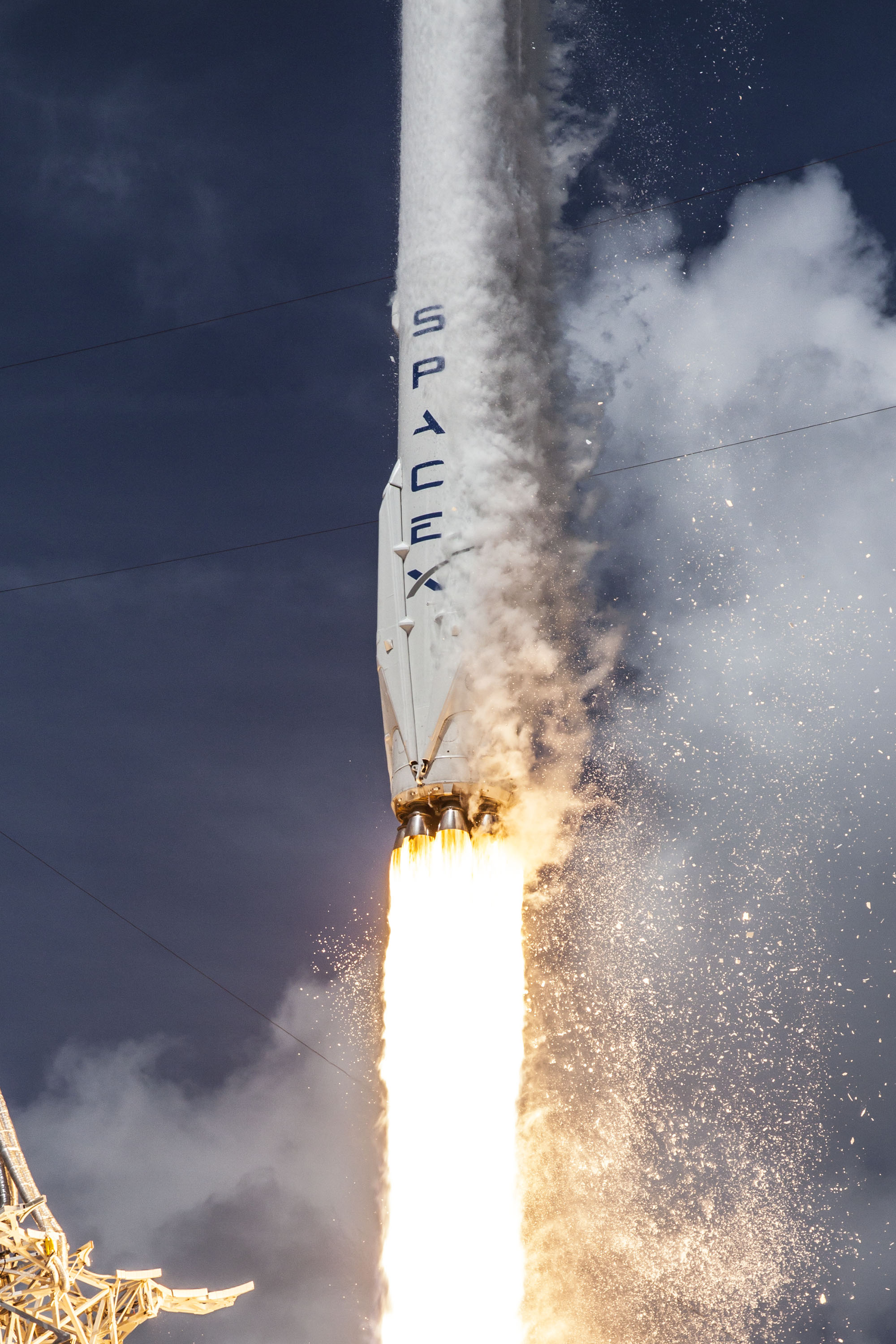Google Plans To Invest $1 Billion In SpaceX For Satellites
Google's ambitious plan of providing global Internet access could be getting more help with news of a potential investment in Elon Musk's SpaceX company.
The investment is reported to be around $1 billion from Google, which would bring SpaceX's value to over $10 billion. With the investment, Google hopes to support SpaceX's satellite development, which would put multiple satellites in orbit 750 miles above the Earth. These satellites would provide faster Internet service by having data sent to a satellite and then having it bounce through other SpaceX satellites until it reaches the satellite closest to the destination. Then, the data is beamed down.
This is SpaceX's first step into the global Internet scene, but for Google, the investment is just another cog in its ongoing plan of providing Internet access around the world. Google started the project in June 2013 with the announcement of Project Loon, which uses balloons, wind and solar power to bring Internet access to remote areas of the globe.
Last December, most of the balloons were gathered for data analysis as well as to upgrade certain functions. Some of the balloons achieved monumental milestones such as traveling at fast speeds due to wind, reaching unexpected heights, and surviving extreme temperatures.
Even with Project Loon, Google was also looking at alternatives, and in April 2014 the company bought Titan Aerospace for an undisclosed amount. Titan Aerospace specializes in making solar-powered drones, which could help not only in deployment of the balloons from Project Loon, but also in providing additional Internet coverage. Two months later, Google was in negotiations with Virgin Galactic regarding an investment for the technology in its space tourism business as well as $30 million for a small stake in Virgin Galactic.
With Musk's announcement of the satellite program only a few days ago, it's still unclear as to how it will fit with Google's overall plan. Project Loon and the purchase of Titan Aerospace have the potential to work together in the upper atmosphere, while the investments in both Virgin Galactic and SpaceX show that Google is looking at space as another means to distribute Internet service. Aerial coverage seems to be the way to go for Google, but it might be a while until we see the full effect of its many projects.
Follow Rexly Peñaflorida II @Heirdeux. Follow us @tomshardware, on Facebook and on Google+.
Get Tom's Hardware's best news and in-depth reviews, straight to your inbox.
Rexly Peñaflorida is a freelance writer for Tom's Hardware covering topics such as computer hardware, video games, and general technology news.
-
wishmaster12 is virgin atlantic, and space x even legit space exploration companys. like I know NASA is. also with satilite internet how exactly r they gonna upload data without someone hacking their satilites. satalites r very powerful machines, id be careful.Reply -
Eximo Not sure I take your meaning.Reply
Virgin Galactic and SpaceX are certainly aerospace companies. Space exploration isn't really a goal, more like space exploitation and development. NASA itself is not space exploration company persay either. They are quite diverse in aerospace, general science development and research, and space exploration being the more publicly visible initiatives.They contract to aerospace companies for their equipment. Only difference being that they are government funded and have to follow government bidding contract rules.
NASA has hired SpaceX on two occasions to deliver supplies to the International Space Station.
Virgin Galactic is more about space tourism.
Not sure what satellites you've heard about being hacked, but that is nearly impossible without inside knowledge, not to mention the equipment. Not sure what you mean by powerful machines. Space hardened equipment is usually low power and slow. If you are talking about capabilities, there are hundreds of media satellites out there that just re-direct data. More or less giant routers with big antennae.
No different from Hughes Net which has been around for decades supplying remote locations with satellite internet capability.
